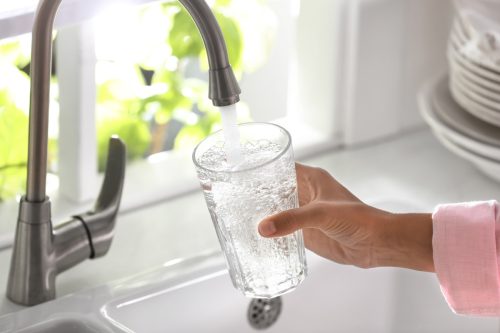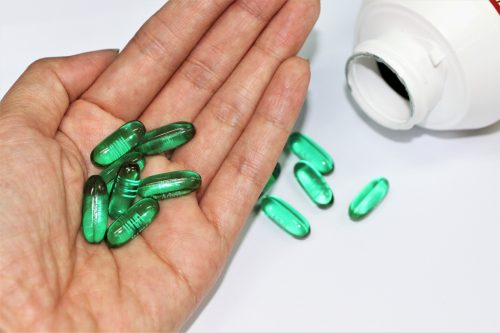Doctors Warn These 5 "Healthy" Habits May Be Silently Harming Your Kidneys — Best Life
When we think of kidney health, we tend to go straight to sodium and hydration. If you don’t eat a lot of salt or let yourself become severely dehydrated, you probably figure your kidneys are doing just fine. But these vital organs—they filter your blood, remove toxins, and produce certain hormones—are much more complex than we sometimes give them credit for.
In fact, the Centers for Disease Control and Prevention (CDC) estimates that chronic kidney disease (CKD) affects more than 1 in 7 U.S. adults. That’s about 35.5 million people, or 14 percent of the population. Even more alarming is that up to 90 percent of these Americans are unaware that they have CKD, a condition in which the kidneys become damaged over time and cannot filter blood efficiently. This can cause fluid and toxins to build up in the body, and it can increase the risk of heart disease and stroke.
Another worrying fact is that doctors say some common “healthy” habits could be silently harming your kidneys. But the good news is that these things are easy enough to change to get your kidney health back on track.
RELATED: Doctors Warn These 5 “Healthy” Habits May Be Silently Harming Your Brain.

 Shutterstock
Shutterstock
Of all the feedback we received, eating too much protein was the most commonly cited “healthy” habit that can harm your kidneys. This often comes into play when people consume excessive protein shakes as part of a fitness regimen.
“Eating double or triple the recommended protein doesn’t build more muscle, it just makes your kidneys work overtime,” states board-certified urologist David Shusterman, MD.
In fact, a 2020 study published in the Journal of the American Society of Nephrology (JASN) linked high-protein diets to an increased incidence of new-onset CKD since your kidneys are responsible for filtering protein from your blood. Over time, this added strain can lead to serious issues.
Nephrologist Tim Pflederer, MD, chief medical officer of Evergreen Nephrology, adds that protein consumed from animal meat is especially dangerous for those with chronic kidney disease.
Try this instead: Of course, it would be counterproductive to eliminate protein from your diet entirely. That’s why Pflederer recommends ditching animal sources and opting for plant-based proteins like legumes, soy, nuts, and whole grains like quinoa and lentils.
Research backs this up, too: A 2021 study published in the journal Nutrients concluded that vegetarian diets improve the body’s ability to handle complications of CKD.
More generally, Shusterman advises keeping track of your protein intake: “Think 0.8–1 gram of protein per kilogram of body weight daily unless your doctor says otherwise.”

 Shutterstock
Shutterstock
It seems like there’s a supplement for everything these days, and indeed, the supplement market in the U.S. is growing by billions of dollars. However, since vitamins and supplements aren’t pre-approved by the Food & Drug Administration (FDA), there’s a lot of misinformation and misuse out there.
To that point, doctors caution that certain supplements, especially when taken at high doses, can damage your kidneys.
Turmeric, high-dose vitamin C, and high-dose calcium can all cause kidney stones, while vitamin D can be problematic for those with CKD.
“Vitamin D supplements can interact with aluminum-containing phosphate binders often used in chronic kidney disease patients to reduce the phosphate levels in the blood,” HaVy Ngo-Hamilton, PharmD, a BuzzRx clinical consultant, previously told Best Life. “Therefore, vitamin D can result in harmful levels of aluminum in people with chronic kidney disease.”
Though less common, potassium supplements are also dangerous, as are herbal supplements that you may not realize contain potassium. “People with chronic kidney disease, including those on dialysis, must watch their potassium intake to prevent potassium accumulation in the blood,” Ngo-Hamilton said.
Try this instead: Supplements are not inherently bad. If you’re considering taking any, first speak with your doctor, who can alert you to any potential side effects or medication interactions.
RELATED: 7 Drinks That Protect Your Liver, Gastroenterologist Says.

 Shutterstock
Shutterstock
Detox teas claim they can rid your body of toxins and excess waste, while also promoting weight loss. However, there is little scientific evidence to support this, and Shusterman points out that these products can even harm your kidneys.
For one, these teas contain diuretics, which increase your urine output (hence the rapid “weight loss”). This can lead to dehydration and electrolyte imbalances, both of which can strain the kidneys.
Detox teas also typically contain unregulated herbal ingredients like licorice root, St. John’s wort, and Senna leaf, all of which are known to be harmful to the kidneys.
Try this instead: “The best detox is the one your body already has, your kidneys,” advises Shusterman. “Support them with whole foods, fiber, and hydration. Skip the fads, trust your biology.”

 Shutterstock
Shutterstock
Yes, it’s possible to overhydrate, especially when you down an excessive amount of water in a short time.
As Calm explains, “Your kidneys are responsible for balancing the amount of water and electrolytes (like sodium) in your body, but they can only process about 0.8 to 1.0 liters of water per hour. If you drink water faster than your kidneys can filter it out, electrolytes in your bloodstream can become diluted.”
“This is a problem because sodium helps regulate the balance of fluids inside and outside of your cells—and if there’s too little, it can cause swelling,” their experts continue. “This can affect different parts of your body, including your brain, which can lead to some serious symptoms and, in very rare cases, life-threatening conditions.”
Try this instead: Shusterman says his general rule of thumb is to drink when you’re thirsty. He also points out that your urine should look pale yellow if you’re appropriately hydrated.
RELATED: Doctor Says These 10 Supplements Can Damage Your Digestive System.

 Shutterstock
Shutterstock
Non-steroidal anti-inflammatory drugs (NSAIDs) such as aspirin, ibuprofen (Advil, Motrin), and naproxen (Aleve) are over-the-counter medications used to reduce pain, inflammation, and fever.
Since they’re non-addictive (like dangerous opioids) and so easily available, many people take them without a second thought. However, overusing NSAIDs is “a fast track to kidney stress,” says Shusterman.
“NSAIDs restrict blood flow through the renal arteries, which over time impairs the filtration process, and that can mean a drop in kidney function over prolonged use, even with low-dose regular use,” double board-certified pain expert Thomas Pontinen, MD, previously told Best Life.
“It may not be a big deal at 28 years old, but at 48, add some dehydration, high blood pressure, or other health complications, and you might be at risk of chronic kidney disease,” he added.
Pontinen said he’s even seen “people end up with acute kidney injury after taking just two Advil tablets daily for three weeks straight.”
Try this instead: “Save pain relievers for when you truly need them,” advises Shusterman. “For everyday soreness, your best medicine is stretching, sleep, and hydration. Ice and heat can work wonders without the kidney risk.”

 iStock
iStock
“CKD can be detected in mild stages by a simple test of blood and urine. The blood test is called glomerular filtration rate (GFR), and the urine test is called the urine albumin to creatinine ratio (UACR),” says Pflederer.
“These two tests can identify people who have early kidney damage so that measures can be taken to prevent worsening, including the complication of kidney failure that might require a kidney transplant or dialysis,” he adds.
To maintain a kidney-healthy lifestyle, avoid tobacco products, maintain a healthy weight, exercise regularly, watch your sodium intake, and monitor your blood pressure levels.
We offer the most up-to-date information from top experts, new research, and health agencies, but our content is not meant to be a substitute for professional guidance. When it comes to the medication you're taking or any other health questions you have, always consult your healthcare provider directly.